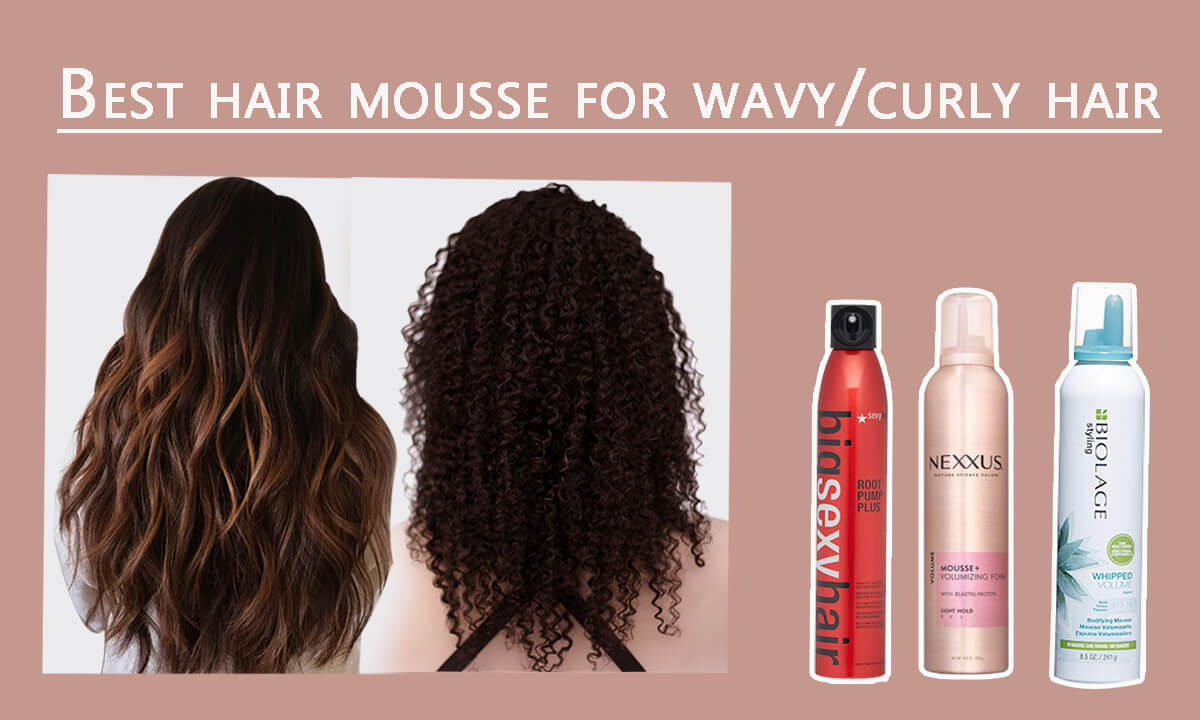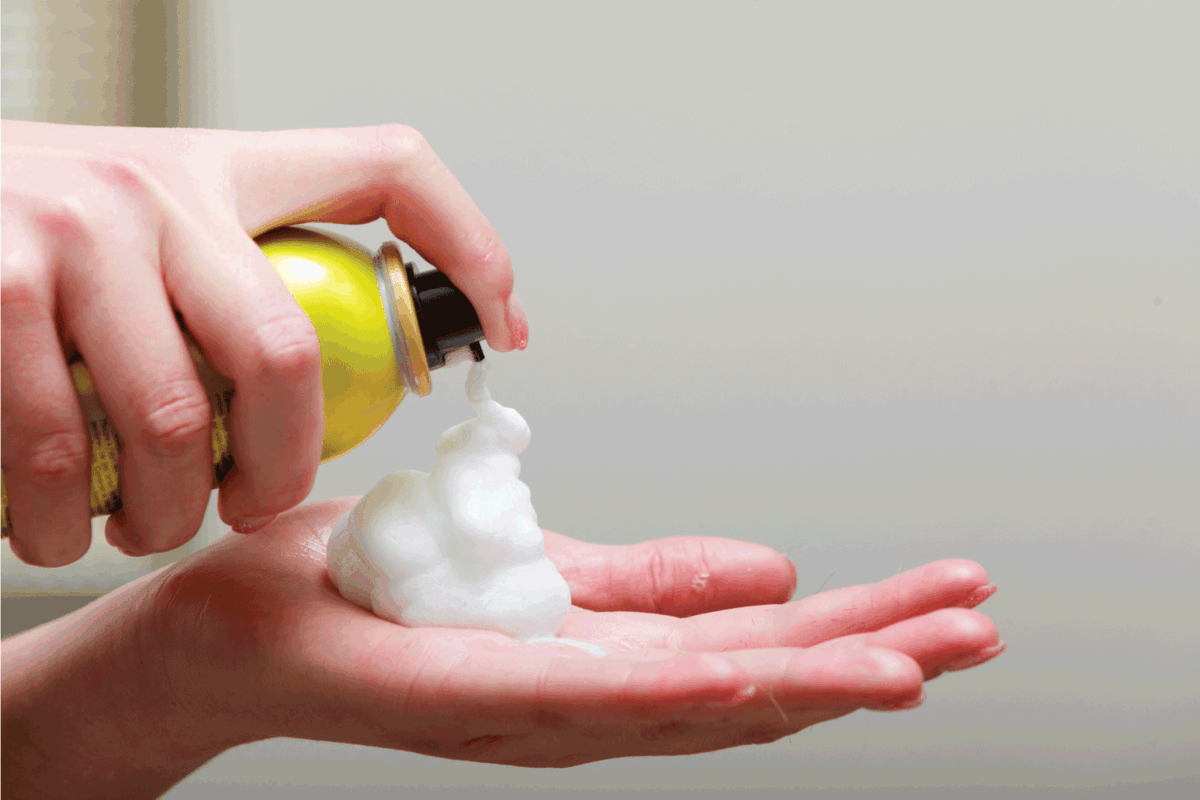Table Of Content

Additionally, some of the ingredients in shampoos and conditioners can disrupt the scalp microbiome, which can then affect the integrity of the hair, notes Hill. This loss of integrity often means that hair becomes dry and brittle, adds Fairley. “If someone doesn’t wash their hair enough, scalp conditions [can] flare up and [will often] impact healthy hair growth,” says Gaunitz. Not washing hair often enough can also cause an overgrowth of demodex, a small parasite that feeds on the oil and epithelial cells inside the hair follicles of the scalp and face, he says. “Hair loss can accelerate if you have loss already, and other inflammatory scalp conditions can become amplified,” he adds.
Shilpi Khetarpal, MD, Cleveland Clinic Dermatologist
Fine waves and loose curls can get weighed down easily from product buildup, especially if you’re loading up curly-hair products rich in butters and oils. If your hair needs a quick refresh before your next hair-washing session, you have a couple of options. One is to use dry shampoo, which helps absorb excess oils on the hair and scalp. Just be careful not to overdo it — too much dry shampoo can clog your hair follicles, making your hair look and feel dirty, which defeats the product's purpose. Be sure to distribute the product evenly throughout your hair with a brush or your fingers. “If you are washing your hair multiple times a week, that in and of itself may not cause damage,” says Dr. Luke.

Oily scalp
On the other hand, in certain cases, not washing often enough can lead to a problem with dandruff, also known as seborrheic dermatitis. “A dry scalp can lead to increased hair shedding,” Dr. Khetarpal says. Oil glands, also called sebaceous glands, are only present in your scalp. This oil (or sebum) needs to make it all the way down each hair strand to the ends in order to moisturize it.
‘Godsend’ Beauty Products That Helped Reviewers With Their Menopausal Skin
If your hair has lost its shine, that's a good sign it isn't moisturized and needs a break between hair-washing sessions. You may also notice more split ends than usual if you're overwashing your hair since wet hair is more susceptible to damage and breakage. Styling your hair every time you wash it can also lead to damage from too much manipulation. If you are prone to scalp buildup or if you live a more active lifestyle, Eaddy says co-washing is an amazing way to gently cleanse the hair in between wash days while adding hydration and helping bring your curls back to life.
Hask Tea Tree & Rosemary Shampoo
If you feel like you’re washing your hair the right amount and still have concerns, see your stylist or dermatologist for advice. However, not everyone can last for more than 24 hours without washing their hair. If this sounds familiar to you, then you may have an oily scalp. You can also re-wet your hair and condition it more often, too,” Lamb says. This is sometimes called "co-poo" for using conditioner to shampoo.
If You Have Greasy Hair
Those with fine hair, Dr. Alam said, may also find that it becomes greasy more quickly, because there is less hair to absorb the oil. Using shampoo every day, Dr. Alam said, can be the right choice for people with oilier scalps where sebum can accumulate, making the hair limp, greasy and possibly smelly. The differences can influence how often a person needs to wash their hair. In this article, we examine how often a person should wash their hair depending on certain factors. We also discuss shampoo alternatives and the risks of overwashing hair.
How Often Should You Shower? Here's What Experts Really Recommend - Vogue
How Often Should You Shower? Here's What Experts Really Recommend.
Posted: Fri, 03 Nov 2023 07:00:00 GMT [source]
“For coarse hair, washing [your hair anywhere] between every five to seven days is best,” she adds. If someone has an excessively oily or dry scalp, they should wash their hair at least every 48 hours, says William Gaunitz, a certified trichologist, founder of Advanced Trichology and member of the World Trichologist Society (WTS). According to Chiara Butler, Beauty, Health & Sustainability Lab Reviews Analyst at the Good Housekeeping Institute, there are studies that show shampooing daily can actually be beneficial to the hair and scalp. "Two studies conducted on East Asian populations showed that markers of scalp health improved with a daily washing regimen," Butler says. It’s not uncommon for people to wash their hair with astringent shampoo on a daily basis. But the culture seems to be swinging the other way, at least in part.
Straight and fine hair
Also, you should pay attention to whether your hair takes a long time to air dry or become fully drenched with water when washing, those can also be other telltale signs of low porosity. Before you can determine your optimal washing schedule (and splurge on a cocktail of products), you need to properly assess your hair — even if you think you already know what it is. Many factors, like porosity and varying textures, aren't necessarily obvious to the naked eye. "And that can lead to the buildup of dead skin and oil residue on the scalp, which can lead to dermatitis or dandruff, and be quite uncomfortable and itchy," she says. "We oftentimes think about shampooing as being beneficial for the hair. But we forget that we also have to address the scalp as well," says Dr. Davis. “If you don’t already comb conditioner through your hair, you need to start now!
Drier hair types can use thicker, more moisturizing products, while oily hair benefits from lightweight versions. The most common hair washing tools recommended by dermatologists are a basic shampoo and conditioner. If you have dandruff, you’ll want to wash your hair three to four times a week, as the excess yeast on your scalp (aka malassezia) feeds off of oil.
Gently massage your scalp in a circular motion while washing to help get rid of any buildup. According to Healthline, if you’re overly elongating the time between hair washes, excess sebum you’ve accumulated on your scalp will clog hair follicles, causing dandruff. Dandruff, also known as seborrheic dermatitis, is caused by the overgrowth of malassezia, a yeast that lives on the scalp, according to Mayo Clinic. “If you leave it too long in between washes, the yeast will grow and irritate the scalp,” resulting in flaking, inflammation, and a red rash around your hairline, Holden notes. Uyehara says she became a fan of the Moroccanoil Dry Shampoo after getting a few free samples from Sephora — she likes the smell of the formula and the fact that it doesn’t leave a white cast on her dark hair. To help you extend the time between washes, experts we spoke to say that cleansing with a good shampoo will set you up for success, then they suggest using dry shampoo in between cleansing.
"Our hair is not made equally and needs special care. Finding what works best for you — in terms of the right shampoo and frequency of washing— can take trial and error and doing some research." Afterward it can help to go in with a leave-in conditioner such as Color Fanatic Multi-Tasking Leave-In Conditioner, which not only hydrates the hair but offers heat protection and detangling benefits. In general, most women find that washing their hair every 2-3 days is a good starting point. The texture of your hair makes a difference in how oily it gets each day. If you think dry shampoo is causing your scalp sensitivity, think again. Afterwards, rinse your hair very thoroughly — any remaining product will cause buildup and accelerate the greasy look — and apply conditioner to the ends only.
Free from sulfates, silicones and parabens, this shampoo works on all hair types and textures. “Each time I use this product, my hair feels soft, smooth and healthier than before,” NBC Select editor Mili Godio says. If there's one truth about hair-care that everyone can live by — whatever your hair texture, color, or routine — it's that there's no one answer for how often you should wash your hair. Whether you shampoo and condition your hair daily (old habits die hard) or stick with a weekly wash day, your frequency can depend on a number of individual factors. Dr. Gohara explains that it’s all about your scalp’s oil production and not necessarily about whether your hair is straight, wavy, curly, or coily. “If your scalp is oily, you may want to wash it with more regularity.












